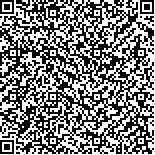袁俊英,张玮,孙二亮,谢晓明,朱登纳.脑性瘫痪国际功能、残疾和健康分类-儿童和青少年版核心分类简明通用版的临床应用[J].中华物理医学与康复杂志,2018,40(2):110-114
扫码阅读全文

|
| 脑性瘫痪国际功能、残疾和健康分类-儿童和青少年版核心分类简明通用版的临床应用 |
| Clinical application of the ICF core set for cerebral palsy children |
| |
| DOI: |
| 中文关键词: 脑性瘫痪 核心分类组合简明通用版 能力低下儿童评定量表 粗大运动功能评定量表 |
| 英文关键词: International classification of functioning, disability and health Cerebral palsy Pediatric Evaluation of Disability Inventory Gross motor function |
| 基金项目:河南省医学教育研究项目(Wjlx015077) |
|
| 摘要点击次数: 8483 |
| 全文下载次数: 8741 |
| 中文摘要: |
| 目的 探讨基于国际功能、残疾和健康分类-儿童和青少年版(ICF-CY)的脑性瘫痪(简称脑瘫)康复治疗模式与传统康复治疗模式的效果差异。 方法 选取2个不同的儿童康复病区划分为应用组和对照组,应用组的康复团队经过系统的ICF-CY培训后,利用ICF-CY脑瘫核心分类组合简明通用版对脑瘫患儿进行评定,然后根据ICF-CY评定结果制订康复训练计划;对照组的康复团队则不进行ICF-CY培训和评定工作,直接采用传统的康复治疗模式对患儿进行康复训练。分别于治疗开始时(治疗前)和治疗3个疗程结束后(治疗后),对2组患儿进行能力低下儿童评定量表(PEDI)评分、粗大运功功能量表(GMFM)评分及辅助器具应用比较。 结果 经3个疗程治疗后,在功能性技能和照顾者协助方面,2组患儿的PEDI评分均优于组内治疗前(功能性技能:应用组t=10.370,P<0.001;对照组t=15.157,P<0.001;照顾者协助:应用组t=21.352,P<0.001;对照组t=8.757,P<0.001),且应用组患儿治疗后的PEDI评分亦明显优于对照组治疗后(功能性技能方面:t=3.860,P=0.001;照顾者协助方面:t=3.401,P=0.001)。2组患儿治疗后的GMFM评分均明显高于组内治疗前(应用组t=17.07,对照组t=20.849,),差异有统计学意义(P<0.001);但治疗后2组GMFM评分的组间差异无统计学意义(t=0.751,P=0.454)。除下肢矫形器外,应用组使用其它日常生活辅具的患儿亦明显多于对照组,且组间差异有统计学意义(χ2=48.692,P<0.001)。 结论 基于ICF-CY的脑瘫康复治疗方案明显优于传统康复治疗模式。 |
| 英文摘要: |
| Objective To compare the effectiveness of cerebral palsy rehabilitation patterned on the children and youth version of the international classification of functioning, disability and health (ICF-CY) with traditional patterns. Methods Two children′s rehabilitation wards were selected as the ICF-CY group and the control group. The children in the former group were evaluated using the ICF-CY and provided with individual rehabilitation plans according to their evaluation results, while those in the latter group were given traditional rehabilitation without any evaluation. Before and after 3 courses of treatment, both groups were assessed using the pediatric evaluation of disability inventory (PEDI) and the gross motor function measure (GMFM), and their use of assistant devices was assessed. Results After three courses of treatment the ICF-CY group′s average PEDI score had improved significantly and was superior to that of the control group. Significant improvement was observed in the GMFM scores in both groups after the treatment, with no significant inter-group differences. Significantly more of the children in the ICF-CY group used the assistive devices (except the lower limb orthoses) compared to the control group. Conclusion Therapy based on the ICF-CY is obviously superior to traditional rehabilitation planning. |
|
查看全文
查看/发表评论 下载PDF阅读器 |
| 关闭 |